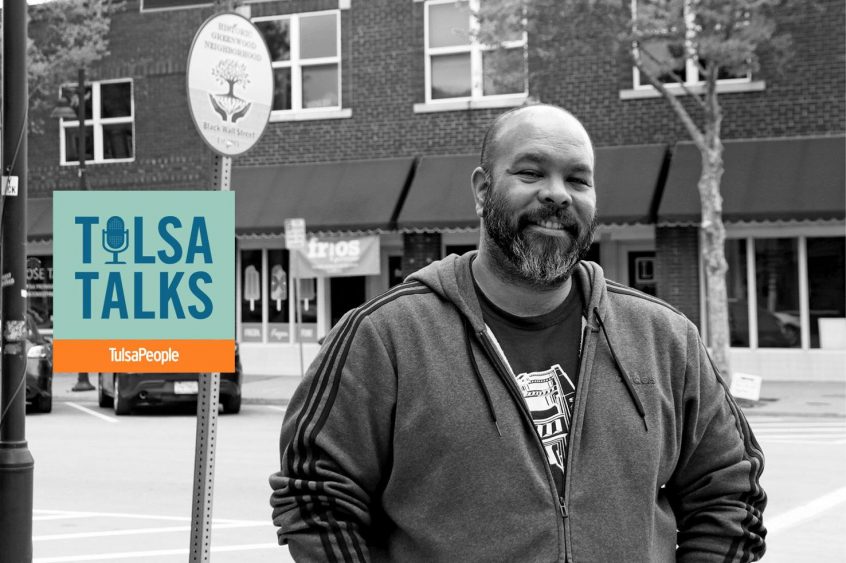Welcome to Tulsa Talks presented by Tulsa Regional Chamber. I’m your host Tim Landes. We are about one month out from the centennial of the 1921 Tulsa Race Massacre. It was one of the worst acts of domestic terrorism in US history, and we’re still learning about it a century later as we work on reconciliation.
Often the stories are bleak. Hundreds of dead. 35 city blocks destroyed. Businesses lost. The Greenwood we now know is nothing like what it once was. Before the Massacre it was a thriving economy.
It took a while to get going again, but Black Wall Street did come back to life in a big way following the horrific events of 1921. My guest on this episode is Carlos Moreno. He’s devoted a lot of time to focusing on the Victory of Greenwood, which is also the name of his upcoming book being released in mid-May.
I had the opportunity to read some of it before it went to press, and as I say in our conversation, it’s a book that’s needed for the library on the history of Greenwood and our city.
Carlos also wrote the second part in our ongoing series on Greenwood for our April issue. His story focuses on the renewal following the Massacre and also the destruction that came through the creation of the Inner Dispersal Loop that cuts through the heart of Greenwood Ave and creates a concrete segregation line dividing North Tulsa from the rest. He also examines the failures of Model Cities and Urban Renewal, often called “Urban Removal.”
Carlos moved here just over two decades ago from California. He didn’t know about the 1921 Tulsa Race Massacre when he arrived. As you’ll hear in this conversation recorded over Zoom, a work opportunity created an academic obsession for Carlos that has only grown over time.
His research and numerous writings and upcoming book make up a long running passion project. By day he’s a graphic designer for CAP Tulsa, which was once again named one of the best nonprofits to work for in the country. It is Oklahoma’s largest anti-poverty nonprofit organization and a national leader in early childhood education. He also volunteers with Code for Tulsa, working to make local government work for the people, by the people, in the 21st century.
Listen to the podcast here.

